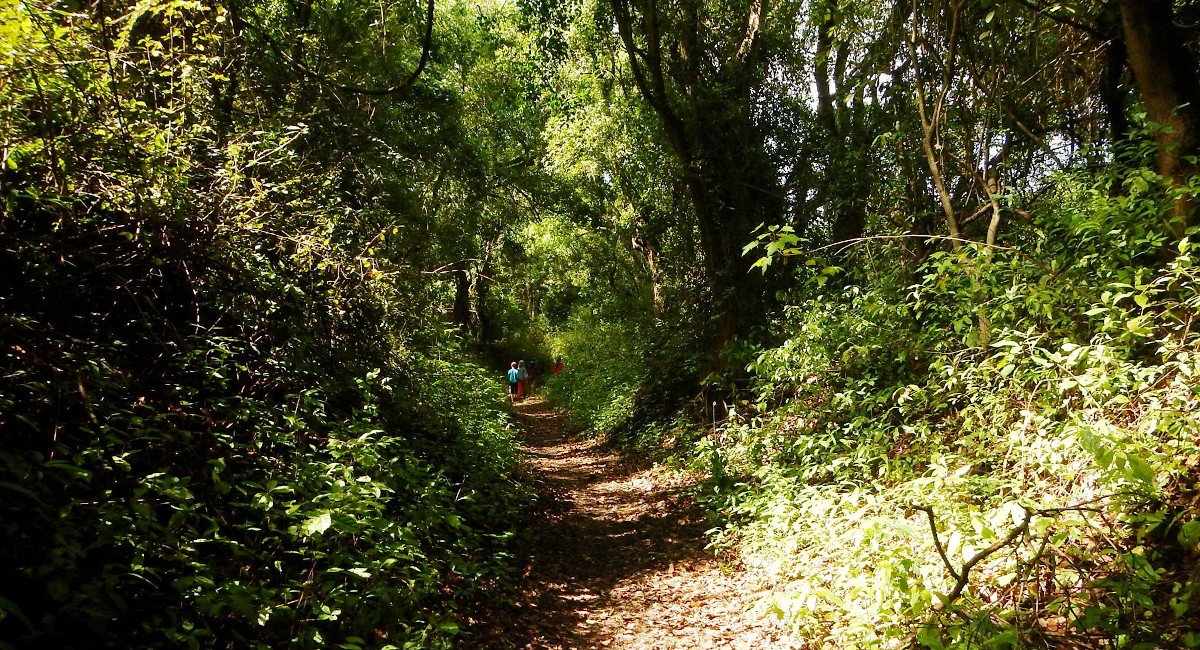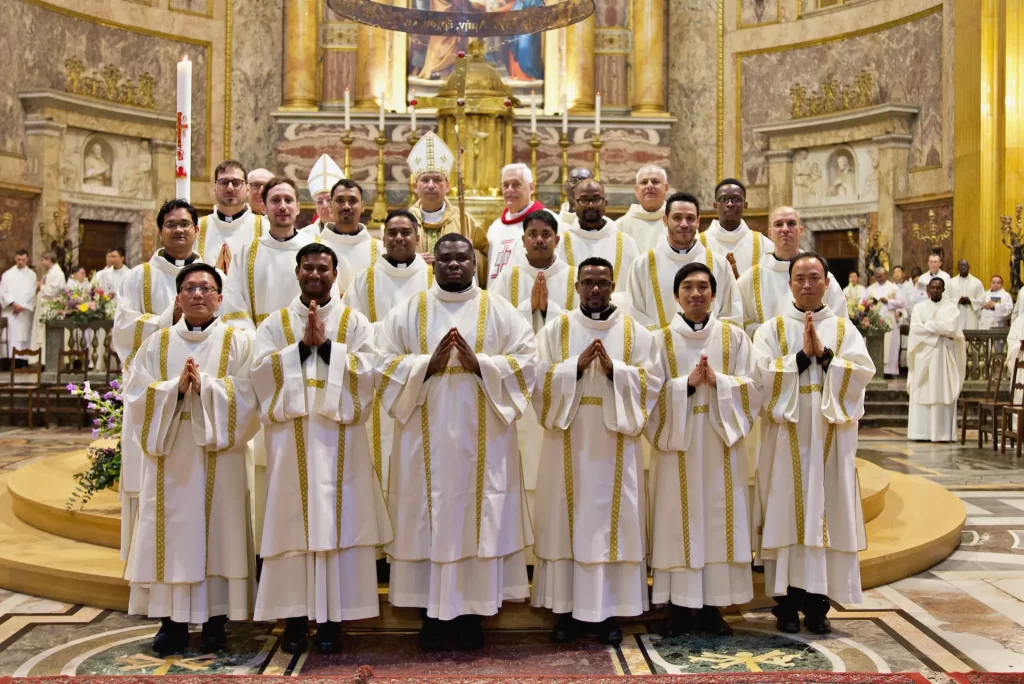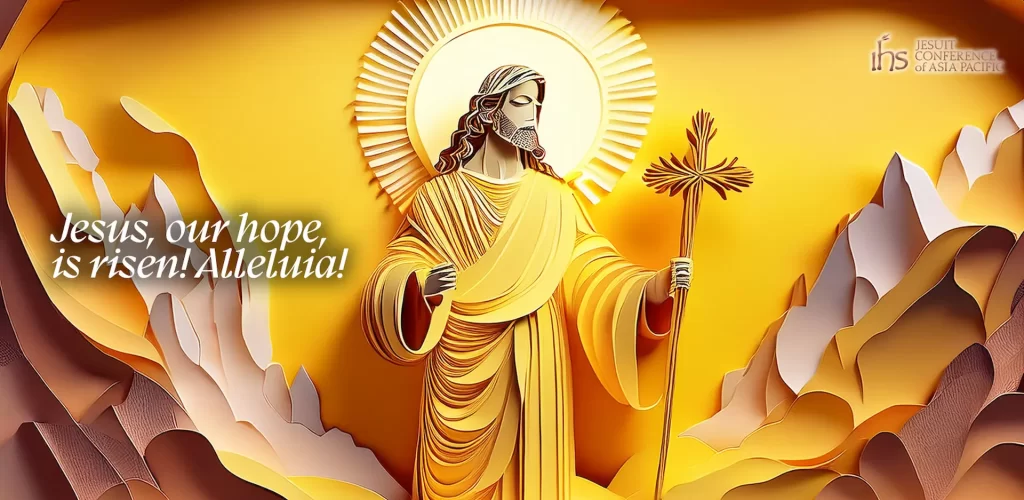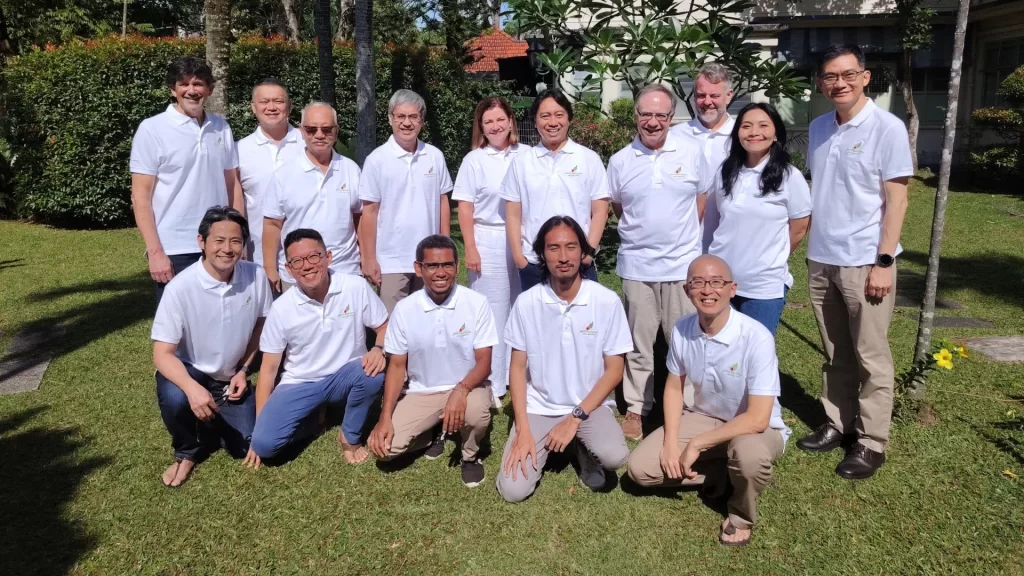
Ecological conversion is at the centre of a series of webinars that the Reconciliation of Creation network of the Jesuit Conference of Asia Pacific is organising. On 25 March, it debuted with a session on finding God in nature with Dr Peter Saunders and Fr Rajesh Punchathalackal SJ.
Dr Saunders explained how traditional theology emphasised a dominion-centric view: nature was for people to utilise in whatever way we wanted to for our own ends. He cited what Ilia Delio OSF points out in the book, Care for Creation: “Even though Christianity is a creation-centred religion, we have turned our attention away from the earth and toward heaven in hope to gain eternal life.”
The person survived in some form after death to be united with God in His heavenly Kingdom. So what does it really matter if the lakes dried up and the world burned?
In fact, this was how Dr Saunders began his presentation—with an image of Lake Mungu in New South Wales, which dried up 14,000 years ago. Lake Mungu holds great archaeological significance because it is the site of the discovery of the oldest human remains found in Australia dating back 42,000 years. The discovery shows important spiritual and cultural links, proving that people had a spirituality and a deep connection with the land long before Jesus became incarnate. “They believed in the creative spirit that not only created everything but was a part of it. The land is sacred. They came from the land, and they were part of the land,” said Dr Saunders.
This spirit of interconnectedness is espoused by Pope Francis in Laudato si’, remarking that “[H]uman life is grounded in three fundamental and closely intertwined relationships: with God, with our neighbour, and with the earth itself (LS 66)”. So the mandate is not to “have dominion” over the earth as much as it is a duty of care towards our natural world. “[O]ur ‘dominion’ over the universe should be understood more properly in the sense of responsible stewardship (LS 116).”
Dr Saunders, who accompanies people on retreat-style walks in nature, highlights a theology that considers how “the entire material universe speaks of God’s love, His boundless affection for us. Soil, water, mountains: everything is, as it were, a caress of God (LS 84).”
“It’s about transforming our hearts into a new way of experiencing God in nature, in all of creation every day. That’s ecological conversion,” he said.
So how does it look in practice?
For Fr Rajesh it is going back to minimalism—a return to simplicity. As Pope Francis said, “Choose the more humble purchase.” Discern between a need and a want. Ecological conversion happens when we finally learn that self-enrichment will not lead to self-fulfilment; when we realise the difference between having more and being more. Ecological conversion, said Fr Rajesh, is an existential conversion. “From that perspective, when you look at the reality of the Earth, it’s different,” he said.
A priest from Kerala, Fr Rajesh initiated a cave retreat eco-spirituality centre that integrates the teachings of Laudato si’ with the conversion experience of St Ignatius. He said that in our fast-paced lives, we need to discern where and how to stop. Our discernment will look different as our situations in life are different.
Eventually we will have to make a choice. Julie Edwards, CEO of Jesuit Social Services Australia, brought up one of the most famous lines of St Ignatius: “Love ought to manifest more in deeds than in words.”
“In our Jesuit world we do a lot of discerning. I think that’s good,” she said, but she added, “I think we need to act.”






